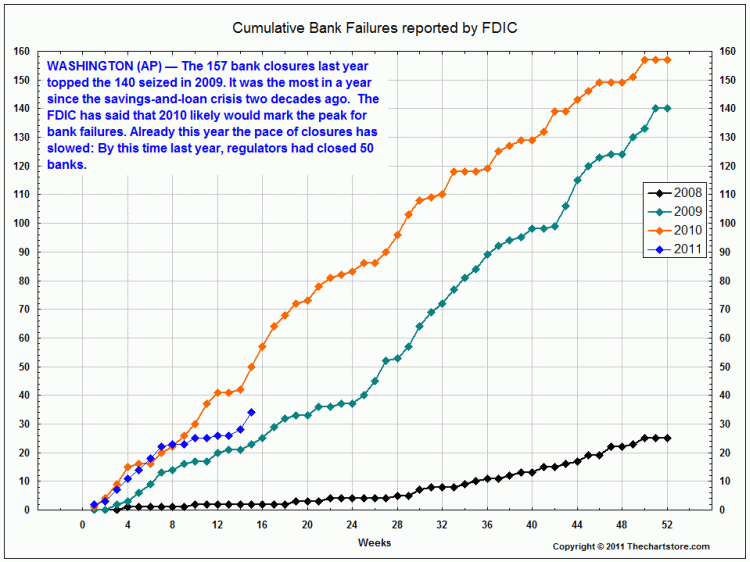“We believe there is a material risk that U.S. policy makers might not reach an agreement on how to address medium-and long-term budgetary challenges by 2013,” New York-based S&P said today in a report. “If an agreement is not reached and meaningful implementation does not begin by then, this would in our view render the U.S. fiscal profile meaningfully weaker than that of peer ‘AAA’ sovereigns.”Is this really a big deal though? After all, S & P was not very insightful when it came to the financial crisis. Barry Ritholtz and Joseph Stiglitz lay it out:
From what I have read of Stiglitz, I don't really agree with him on much (free markets didn't cause the financial crisis; there would have to be a free market in place to begin with), but he nails it pretty well here. Apparently the White House knew the downgrade was coming on Friday, and sent tax cheatin' Timmy out to do the Sunday talk shows. Maybe if he didn't say the exact same stuff (U.S. won't default, economy would implode, government shutdown would be Armageddon) every interview, people would take him more seriously.If ever there was an organization more corrupt, incompetent, and less capable of issuing an intelligent analysis on debt than S&P, I am unaware of them. Why do I write this? A huge part of the reason the US is in its awful financial position is due to the fine work of S&P.Consider what Nobel Laurelate Joseph Stiglitz, economics professor at Columbia University in New York observed:“I view the ratings agencies as one of the key culprits. They were the party that performed that alchemy that converted the securities from F-rated to A-rated. The banks could not have done what they did without the complicity of the ratings agencies.”
The U.S. isn't the only one with less-than-desirable news today, the Greek 2-year bond yield has surpassed 20%:
Maybe this had something to do with it, Bloomberg:
Greece said it has no plans for a debt restructuring even as German officials openly discuss the possibility and investors charge a record amount to insure the country’s obligations.
Traders are betting on a default. The cost of insuring Greek sovereign debt jumped 56 basis points today to a record 1,211 points, according to CMA prices for credit-default swaps. That indicates there’s a 64.5 percent probability of default within five years.On my post yesterday, I explained why I think U.S. higher education may be in a bubble. It looks like someone else has joined the party:
Fair warning: This article will piss off a lot of you. I can say that with confidence because it’s about Peter Thiel. And Thiel – the PayPal co-founder, hedge fund manager and venture capitalist – not only has a special talent for making money, he has a special talent for making people furious.
for Thiel, the bubble that has taken the place of housing is the higher education bubble. “A true bubble is when something is overvalued and intensely believed,” he says. “Education may be the only thing people still believe in in the United States. To question education is really dangerous. It is the absolute taboo. It’s like telling the world there’s no Santa Claus.”The New York Times had an article a week ago on the enormous load of debt many college students are accumulating. Mish, whose post I got this stuff from, summarizes very nicely:
Student loans have done four things, all of them bad.And now via Third Way, here is your interactive federal tax payment receipt. If you didn't already guess it, Social Security tops the list for the biggest payment.
- Jack up the cost of education
- Make students debt slaves for the rest of their lives
- Unjustly hand over huge profits to schools like the University of Phoenix at taxpayer expense
- Add to the national debt
I will end with a few random tidbits. First, here is a chart on the cumulative bank failures reported by the FDIC:
Hmm...2011 seem to be off to a good start, but is now beginning to lag. Let's see what happens when QEII ends and the excess reserves start filtering through. Next is JPMorgan calling out OPEC for the idiotic notion that demand for crude is "weak" and the market is oversupplied:
Undoubtedly demand for OPEC crude “feels” weak at the moment due to domestic refinery turnarounds and Japanese outages. Our refinery maintenance estimates show 6.5 mbd off line in April compared to peak throughput in December. But there is a real danger that by responding to regional market conditions for specific crudes, OPEC is setting the stage for further global price spikes.For idiocy, Jesse Jackson Jr. really takes the cake:
So the iPad kills jobs? My mom has hinted that she may get me one for a graduation gift. I guess she will be throwing a few more Borders employees out on the street...
Update- Simon Black of Sovereign Man in his latest post calls Standard and Poor's out for what it is and recommends China's Dagon Global Rating Co. as the premier rating agency:
Dagong Global Credit Rating Co is China’s leading credit rating agency. Credit rating agencies are the firms who are responsible, among other things, for scoring the credit risk of a particular asset or sovereign nation.
When they rate a security as “AAA”, premium safety, investors pile in. They’re an integral part of the financial system.
You undoubtedly remember that the world’s leading agencies– Fitch, Moody’s, and S&P, were all complicit in slapping AAA premium ratings on so many toxic mortgage-backed securities… and maintaining sound ratings for far too long on bankrupt nations like Greece and Portugal.
The entire industry lacks credibility at this point, and China’s Dagong agency aims to do something about that.


Tidak ada komentar:
Posting Komentar